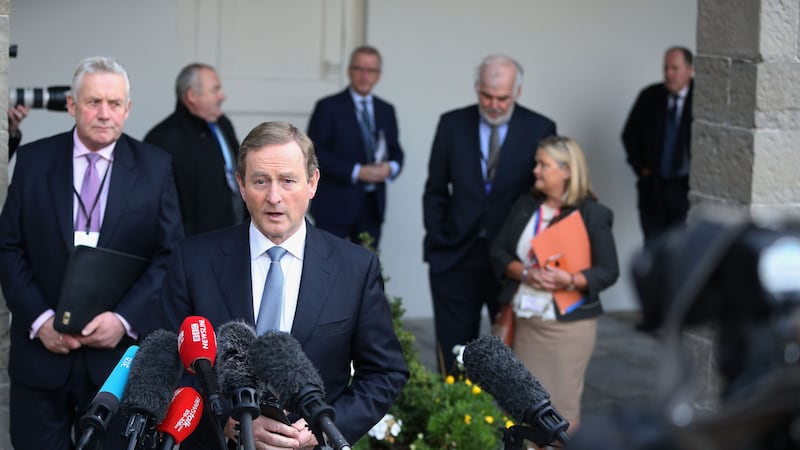DESPITE all the understandable gloom and doom around Brexit and what it actually means there is a real chance it could provide far-reaching change in unexpected circles which could yield democracy to Ireland and Scotland on an unforeseen scale.
Since the Brexit vote to leave the EU in June, the partition of Ireland – in particular the economic consequences of partition - have been centre stage.
The ‘All-Island Civic Dialogue’, set up by the Taoiseach Enda Kenny, is a very good example of one of the beneficial and early developments to arise from the Brexit crisis.
This body met last week and brought together over 300 people from across the island from different backgrounds: political, economic, business, community and cultural who are desperately worried about the economic impact of Brexit on the people they represent.
There was one thing on their collective mind: what does Brexit mean for Ireland – the nation, not just the six or 26 counties but for all its people: nationalist, unionist and those from other countries who have made this their home.
Suddenly the nature of the nearly 100-year-old divisive border (albeit increasingly invisible since the withdrawal of the spy posts and customs buildings), has suddenly loomed again as a scar on the landscape.
The EU and the Good Friday Agreement, including trade and free movement of people across Europe, has certainly mitigated some of the effects of partition and a hard border but not laid the issue to rest.
It was left largely to Sinn Féin to publicly articulate the impact of partition and to challenge the inbuilt partitionist thinking which divides the people of this nation and redirects their energy and their ambition into living in and servicing two different societies; two different states; two different political cultures.
And while the Good Friday Agreement with its all-Ireland bodies transcends partition these bodies need to be developed to their maximum to reintegrate and knit together society on either side of the border and not just along the border corridor as it is called.
Now as a result of Brexit other political parties, Fine Gael, Fianna Fáil, the SDLP, Alliance and even the unionist parties are addressing Brexit in terms of this island, this nation.
The judgment last week in London's High Court correctly identified the issue of a democratic deficit in the British government’s approach post the decision to leave which was clearly high-handed and designed to side-step the British House of Commons.
Whether the judgment survives or not remains to be seen but it has made a valuable contribution to re-opening the debate on the content of what precisely a post EU Britain might look like.
In Ireland, we have lived with a British imposed democratic deficit for almost a millennia including partition.
In the Irish public discourse much is under the spotlight: a border poll for Irish unity; Ireland including the north remaining inside the EU and a special status for the north of Ireland inside the EU which will also keep the north inside the EU with the rest of Ireland.
And in all of this debate we must remember that 56 per cent of the people in the north – a majority – voted to remain inside the EU.
That result is the biggest development to occur on this island since the people voted for the Good Friday Agreement in 1998.
Those unionists who voted to remain are experiencing a salutary lesson from their political leaders in particular the north’s first minister Arlene Foster who has contemptuously dismissed their vote because it does not suit the DUP’s narrow agenda of ‘parity with the UK’.
Parity with the ‘UK’ has brought us the poverty of austerity. Now it will bring us a ‘little Englander’ mentality of racism and jingoism.
What a contrast Nicola Sturgeon is providing to the people of Scotland who, like the people of the north, voted to remain.
Within hours of the Brexit result she declared for Scottish independence in the form of a second referendum.
It is Scotland and its people first as far Nicola Sturgeon is concerned.
As far as the British prime minster Theresa May is concerned it is the Tories first.
Here in Ireland it needs to be Ireland and its people first.








